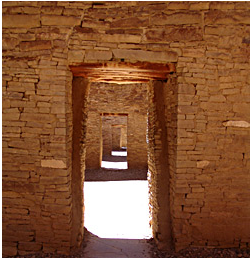Publication Date
5-1-2012
Abstract
My dissertation evaluated whether the palaces built in Florence, Italy during the Renaissance are a form of costly signaling. Costly signaling theory was developed to explain why organisms have attributes and behaviors that appear to defy basic Darwinian logic by having costs that are not offset by obvious benefits. The theory proposes that such attributes and behaviors persist because they are reliable signals of information about the signalers. Signal audiences use the information content of signals to rank signalers and to modify their interactions with signalers in ways that benefit signalers. These interactions can involve mate choice, predation avoidance, status competition, or any other interactions that improve the likelihood that signalers have offspring that survive to reproduce themselves. My research collected information on 206 standing palaces built during the Florentine republic of 1282 to 1532 and during the first several decades of the succeeding Medici Duchy. My research also used primary documentary records of elections to government and guild offices, with political success used as a proxy measure for overall status. I also used electoral records as a source of demographic data. The elections records were then used to evaluate the reproductive and political success of palace builders, their families, and their contemporaries. My research found that palaces are consistent with expectations for costly signals, especially during the period of de facto Medici rule from 1434 to 1494. My research also found that palace builders had much higher than average reproductive and political success. However, they built their palaces after they had completed their reproductive lives and when they were halfway through their political careers. This timing means that palace construction did not benefit palace builders. The benefits of palace building appear instead to have been intended for the eldest sons of palace builders, who were able to maintain their fathers high levels of political and reproductive success. I conclude that palaces were a costly signal of families' ability and willingness to invest resources in their inheriting sons to ensure that those sons could preserve families as demographic entities and as members of the sociopolitical elite.'
Keywords
Conspicuous Consumption, Costly Signaling, Florence, Italy, Handicap Principal, Palaces, Renaissance
Document Type
Dissertation
Language
English
Degree Name
Anthropology
Level of Degree
Doctoral
Department Name
Anthropology
First Committee Member (Chair)
James L. Boone
Second Committee Member
Osbjorn M. Pearson
Third Committee Member
Michael W. Graves
Fourth Committee Member
Geoffrey Miller
Recommended Citation
Church, Michael K.. "Florentine Palaces, Costly Signaling, and Lineage Survival." (2012). https://digitalrepository.unm.edu/anth_etds/12

